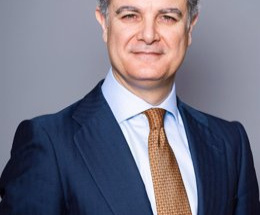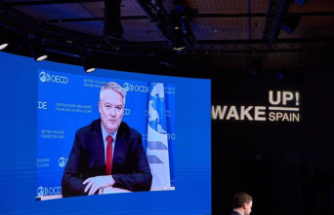After a decline of 0.73% in February, and then remained stable in march, the regulated rate for an average customer heated by natural gas goes back down 1.91% in April. The regulated Engie, applied to nearly 4.5 million homes in france, usually vary from one month to another depending on the costs related to gas supplies, infrastructure and marketing, as well as various taxes.
• CMU-C: automatic renewal for recipients of the RSAThe ceiling of resources for the allocation of the universal health coverage complementary (CMU-C) will be increased from 8.810 euros per year 8.951 euros for a single person. In addition, the renewal of the CMU-C will become automatic for recipients of the RSA, in order to simplify and improve access to care. About 670.000 households (recipients and beneficiaries) are concerned by this measure, according to the health Insurance.
• Entry into force of the basket of care "100% health"To allow the French a better access to health care, the reform remains at zero-load, carried by the ministry of solidarity and health, provides for the full reimbursement of the hearing aid, eyeglasses and dentures due 2021. These "baskets care" will be accessible to every French person in possession of a complementary health. The reform is progressive. Since the January 1, 2019, the rates of all hearing devices have been capped, allowing complementary health to take charge of a substantial part of the costs. The gain for clients is eur 200 per ear this year and will be of 250 euros next year, before reaching a full refund in 2021. January 1, 2020, the rest at zero load will also enter into force on a set of frames and optical lenses.
today, the price of dental crowns is capped based on the material used and the tooth affected. For example, for a metal-ceramic crown on the incisor, the canine or the first molar, the rate of operation shall not exceed 530 euros. The rest at zero load will be effective in 2020 for all dental crowns and in 2021 for all other prostheses. At the same time, the rate of "current care" as the treatment of caries or decalcification of a tooth, will be upgraded to address the cap of the prosthesis. The care of caries, for example, will gradually increase from 40% to 70% depending on the acts performed.
• TrainingThe new players in the vocational training come to the track: the "operators of skills" (Opco), managed by the social partners, shall have for missions to finance learning, to help the branches to build the professional certifications and accompany the SMES to define their training needs.
• Revaluation of several social benefitsThe social aid paid by the insurance to relatives of disabled or deceased, are now growing by 0.3 %. Are affected by this measure: the amount of disability pension, the increase for the constant help of a third person, the benefits paid under the accidents at work and occupational diseases and death.
The basis of the calculation of family allowances, originally indexed to inflation, will also be adjusted at a pitch of 0.3%, according to a provision included in the draft finance act 2019. The additional allocation of invalidity and the state medical aid (AME), to increase 1.6 % as of today. Other social benefits are revalued on the basis of inflation, it is the case of the income of active solidarity (RSA) and the allowance of specific solidarity (ASS).
• better information on the automotive parts usedSince January 1, 2017, automotive professionals must offer used parts instead of new parts for maintenance or repair of a vehicle. As of today, a decree sets the terms and conditions specific to this measure. The consumer must be clearly informed of his right to opt for used parts. It must also be aware of the prices and the origin of the parts (parts of vehicles out of use, recycled, or reconditioned parts).
• The end of the "premium Macron"It was one of the measures announced by Emmanuel Macron to meet the wrath of the "yellow vests". An exceptional bonus could be paid by all businesses to all employees whose compensation is less than three times the Minimum wage. This premium défiscalisée and "désocialisée", presented by the President of the Republic as "a concrete support to the" purchasing power", cannot be distributed since yesterday. Paid to more than two million employees with an average amount of 450 euros, it was a resounding success. The government had welcomed it in a press release published on 19 march, indicating that the total amount exceeded "1 billion euros".
" READ ALSO "Premium Macron": employees have received more than a billion euros.
• The code of the public order in forceWorn by Agnès Pannier-Runacher, secretary of State, with Bruno Le Maire, the code of the public order enters into force today. This new code, adopted in November by the Council of ministers, has the ambition to simplify the life of businesses who work with the State, hospitals, local communities. This tool brings together, in one document, 30 legislative or regulatory texts (order of 2015 on the public procurement decree in 2010 on the conciliation act, 1975 on subcontracting etc) today scattered. "It is a vade-mecum for the different actors, firms like buyers, to know all the rules of the game", explained Agnès Pannier-Runacher, before adding, "we want to be sure that the SMES do not exercise self-censorship, not by the command of the public." The issue is real "the public markets, it is 200 billion euros per year, it is a significant export opportunity for SMES, in particular in the railway construction, the building and public works with about 30 billion euros of contracts in 2017, or even in the defence sector with 7 billion euros of contracts", had then detailed the secretary of State.
This new code also includes devices related to alternative methods of disputes in order to encourage the actors to adopt an approach to "quick and non-contentious" resolution of their disputes.
" READ ALSO - Agnès Pannier-Runacher unveils a new Code of the public order
Date Of Update: 03 April 2019, 00:00












